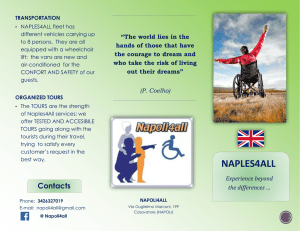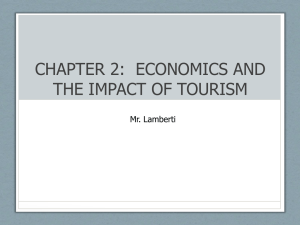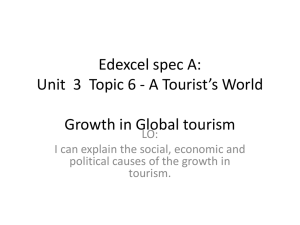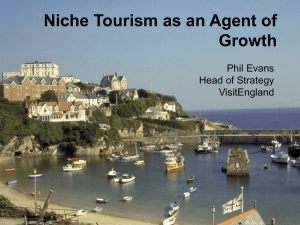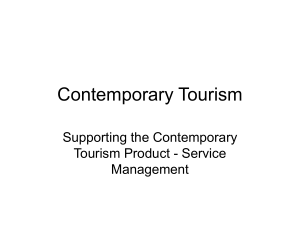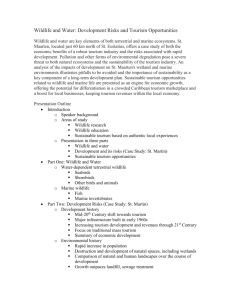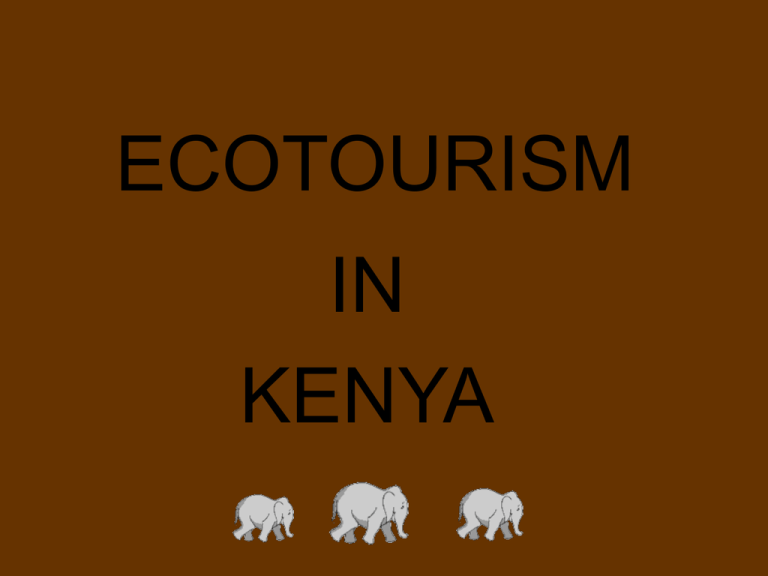
ECOTOURISM
IN
KENYA
Background
• The name of the project is
called ‘Propoor Tourism’
• Propoor tourism is an
enlightening, participatory
travel experience to
environments, both natural
and cultural, that ensures
the sustainable use, at an
appropriate level, of
environmental resources
• Also, producing viable
economic opportunities for
the tourism industry and
host communities, makes
the use of these resources
through conservation
beneficial to all tourism role
players.
Objectives
• To address the various social problems in Kenya
such as youth unemployment, gender inequality,
poverty, environmental degradation and humanwildlife conflict.
• Increase the potential for tourism to deliver propoor growth by offering significant benefits to the
poorest people.
• Improve the coordination between the efforts of
various stakeholders in Kenya's travel and
tourism industry in order to maximize the
potential to support pro-poor tourism.
Areas of Work
• There are five main areas of work:
1. HIV/AIDS Transmission Through Tourism
Prevention Program (HATP)
2. Pro-poor African Curio Trade (PROACT)
3. Economic Wildlife Enterprise Business
(ECOWEB)
4. African Conservation Education (ACE)
5. Fair International Tourism Trade (FIT)
HIV/AIDS Transmission Through
Tourism Prevention Program (HATP)
• Their role is to promote safer sex and the use and
spread of condoms around Kenya. Also to encourage
people to get tested early for STI’s and to educate them
on the matter.
Pro-poor African Curio Trade (PROACT)
● The program is aimed at addressing the problems facing
the rural marginalised communities, namely; poverty,
youth unemployment and gender inequality through the
selling of souvenirs made by these communities.
Economic Wildlife Enterprise Business
(ECOWEB)
• Consists of motivating the locals to live hormoniously
with the wildlife. Also to lobby the communities to embark
on community based projects through which they can
earn direct returns from accommodating wildlife.
• For example the clash between the lions of the Maasai
Mara national park and the cattle belonging to the
Maasai people living there.
• At present ECOWEB are trying to sort the problem out.
African Conservation Education (ACE)
• ACE lets young people and their educators learn more
about the natural world we live in.
• Emphasizing wildlife because of its intrinsic and
ecological values, as well as its importance as a basis
for teaching how ecosystems function.
Fair International Tourism Trade (FIT)
● FIT is concerned with ensuring that the people, whose
land, natural resources, labour, knowledge and cultural
heritage are used for the tourism business, actually
receive tangible benefits from this multi-billion industry.
Conclusion
• To conclude, the propoor tourism project in
Kenya is beneficial to the local
communities, to education and to the
environment.
BY
OLIVER
KNIGHT






